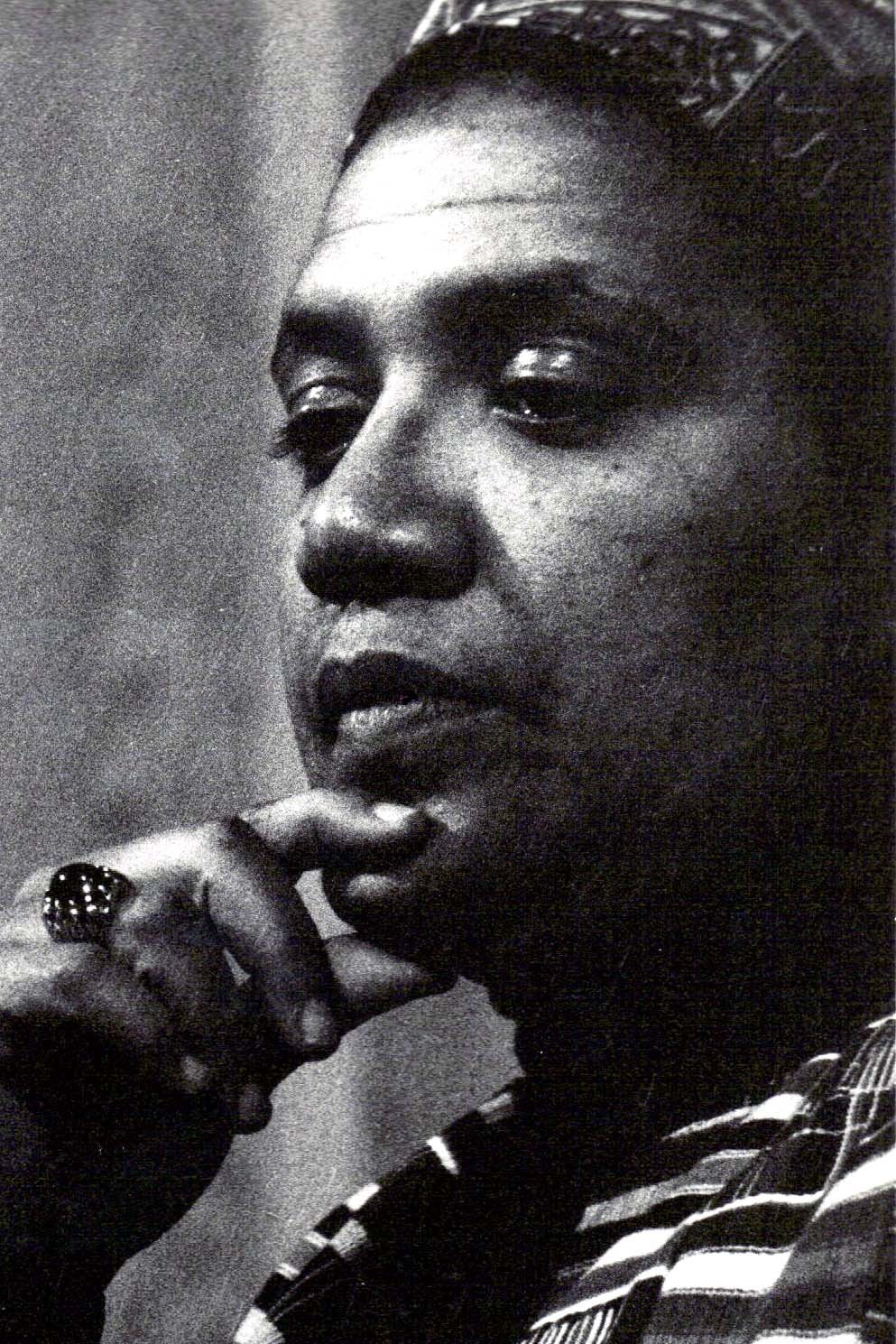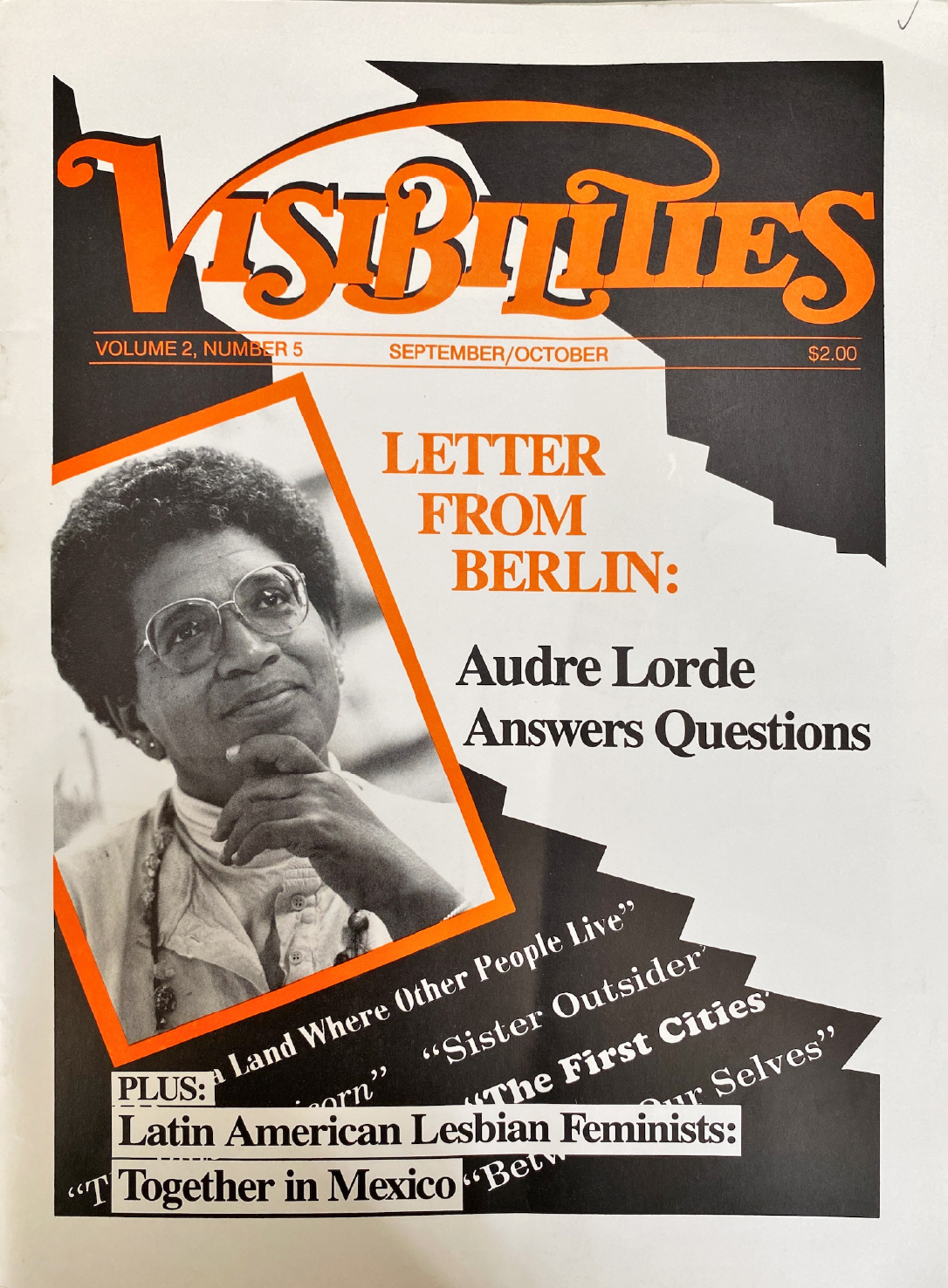Audre Lorde
Black lesbian feminist poet Audre Lorde is among the most incisive social critics of the 20th century, but her work has only rarely been read closely by philosophers and political theorists. My work on Lorde explores themes of political agency, epistemic resistance, and moral imagination across her essays, poetry, and speeches. My forthcoming book, The Unflinching Philosophy of Audre Lorde, includes chapters on survival and identity, on the role of feelings in her epistemology, on the “erotic” as a resource for coalitional politics, and on poetry, anti-imperialism, and cross-generational change.
Photo by K. Kendall, shared under CC BY 2.0
Publications on Audre Lorde
“Audre Lorde on the Sacred Scale of Livability: Alexis Pauline Gumbs in Conversation with Caleb Ward”
Hypatia: A Journal of Feminist Philosophy 40, no. 2 (2025): 366–379
My conversation with Black feminist writer, poet, educator, organizer, and scholar Alexis Pauline Gumbs about the relationship between spirituality and politics, Lorde’s ecological perspective, the role of gender essentialism in her thought, her philosophy of education, and the cross-generational scale of social change.
“Inheriting the Poetry of Survival”
The Philosopher 112, no. 2 (2024): 99–104
Through a long-form review of Alexis Pauline Gumbs’s book Survival Is a Promise: The Eternal Life of Audre Lorde, this article identifies several points of inheritance from Lorde that become visible when one examines the particulars of her life. This includes Lorde’s theory of poetry, her coalitional praxis, and her account of the energy needed for political action and the work of scaling up that energy from the smallest kernel of feeling.
“Audre Lorde’s Erotic as Epistemic and Political Practice”
Hypatia: A Journal of Feminist Philosophy 38, no. 4 (2023): 896–917
This article examines in detail Lorde’s concept of the erotic, identifying four integral elements: feeling, knowledge, power, and concerted action. The erotic is a way of feeling in a person’s work, which makes possible novel, politically charged knowledge about the self and the social environment. The erotic is a source of power by providing vision and energy for actions integrating a person’s many commitments and political interests. It facilitates concerted action and coalition by enhancing a person’s appreciation of their interests and values, while fostering embodied, personal connections that build trust on the basis of shared vulnerability.
“Feeling, Knowledge, Self-Preservation: Audre Lorde’s Oppositional Agency and Some Implications for Ethics”
Journal of the American Philosophical Association 6, no. 4 (2020): 463–482
Throughout her work, Audre Lorde maintains that her self-preservation in the face of oppression depends on acting from the recognition and valorization of her feelings as a deep source of knowledge. This portrayal of agency poses challenges to standard positions in ethics, epistemology, and moral psychology. This article examines the oppositional agency articulated by Lorde's thought, locating feeling, poetry, and the power she calls ‘the erotic’ within her avowed project of self-preservation. It then explores the moral and epistemological implications of taking seriously Lorde's account, examining as a case study how Lorde's account unsettles prevailing assumptions about the role of consent in responsibility between sexual partners.
“Survival and Self in Audre Lorde”
Blog of the APA, February 18, 2022
This blog post introduces Lorde’s rich conception of survival. More than merely avoiding death, survival for Lorde is survival as this one who she is: she must be able to preserve and live out her multiple identities as Black, as a woman, as a lesbian, as a mother. Lorde contrasts this idea of survival against the pursuit of security, where the latter often requires a person to give up some key aspect of self to secure the fulfillment of basic needs. Thinking survival as self-preservation, we can see the political and moral inadequacy of promises of safety tied to passing as straight, remaining silent about racist violence, or conforming to expectations of respectability.
Audre Lorde Interview Series
Videos of interviews conducted with Lorde scholars, 2022–2024
A series of interviews with Black feminist theorists and scholars on the thought and philosophical legacy of Audre Lorde. Interviewees include feminist philosopher Kristie Dotson, theorist Amber Jamilla Musser, scholar-activist SchwarzRund (Melina Morr de Pérez), and author Alexis Pauline Gumbs.
Selected Resources for Audre Lorde Researchers
“Letter from Berlin: Audre Lorde Answers Questions”
Visibilities: The Lesbian Magazine 2, no. 5 (Sep/Oct 1988): 4–7
This interview with Lee Chiaramonte, never reprinted as far as I know, features Lorde at the height of her philosophical powers. She reflects on power and powerlessness, fear and courage, oppression and identity, and the role of the artist. It needs to be read more widely.
Thank you to the Lesbian Herstory Archives for this scan!
Audre Lorde audio recordings, 1977-1986
from the Lesbian Herstory Archive
Free to stream or download, the LHA collection has digitized cassettes of Lorde reading and speaking at conferences and poetry events. These include early presentations of “The Transformation of Silence into Language and Action” (at the MLA 1977) and “The Uses of the Erotic” (at the Berkshire Conference 1978).


